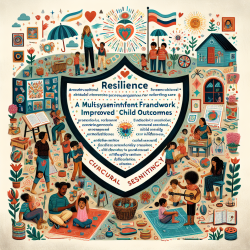The journey of transnational students is fraught with unique challenges that can significantly impact their well-being and educational outcomes. A recent study, "Urban Violence, Migration and Alcohol, Tobacco, and Marijuana Use among Transnational Students in Northern Mexico," sheds light on the complex interplay of factors influencing substance use among these students. This blog post aims to help practitioners enhance their skills by implementing the study's findings or encouraging further research.
The Impact of Transnational Experiences
The research conducted in Nogales, Mexico, highlights a significant relationship between transnational experiences and substance use among 7th-grade students. The study found that students with transnational experiences, such as attending school in the United States (US), reported higher prevalence rates of tobacco and marijuana use. These findings underscore the importance of understanding the risk factors associated with transnational experiences.
Key Findings
- Substance Use Prevalence: The last 30-day prevalence of alcohol, tobacco, and marijuana use among students was 21.7%, 8.3%, and 2.4%, respectively.
- Transnational Influence: Students who attended school in the US showed higher prevalence rates of tobacco (13.3%) and marijuana (9.5%) use.
- Risk Accumulation: The study highlights how exposure to permissive drug use norms in the US can influence substance use patterns upon returning to Mexico.
Implications for Practitioners
The findings from this study provide valuable insights for educators and practitioners working with transnational students. Here are some ways to apply these insights:
- Cultural Sensitivity Training: Educators should undergo training to understand the cultural dynamics and challenges faced by transnational students.
- Create Supportive Environments: Schools should foster environments that promote a sense of belonging and connectedness for all students.
- Implement Prevention Programs: Evidence-based prevention programs like "Mantente REAL" can be adapted to address the specific needs of transnational students.
The Need for Further Research
This study opens up avenues for further research into the unique challenges faced by transnational students. Future studies could explore:
- The long-term effects of transnational experiences on mental health and substance use.
- The role of community support systems in mitigating risk factors.
- The effectiveness of adapted prevention programs in different cultural contexts.
The journey of transnational students is complex, but by implementing research findings and conducting further studies, educators can play a crucial role in supporting these students' well-being and academic success.










